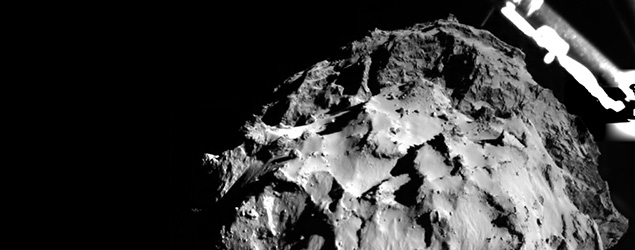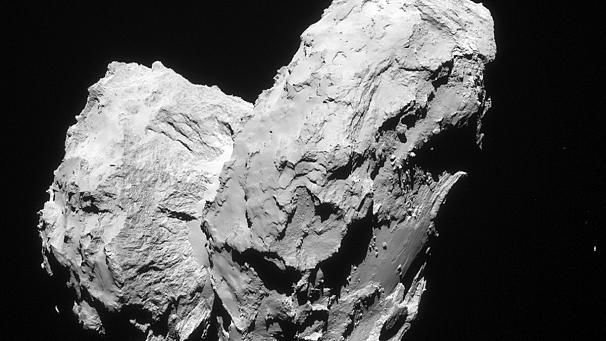
Europe’s robotic explorer Rosetta has been orbiting the four kilometre-wide Comet 67P/Churyumov–Gerasimenko for over a year and while astronomers already knew that this icy interloper and others like it harbor many of the essential chemical ingredients for life, now surprisingly it seems we can add reservoirs of oxygen to that list.
According to the new study published in the journal Nature, what makes this finding even more perplexing is that despite oxygen being a molecule that breaks down quickly, which then combines to form other chemicals, the comet’s oxygen supply may in fact be quite ancient , having formed billions of years in the past out of the same primordial cloud the Sun, Earth and all the other planets formed.
“I actually closed my eyes and said ‘this cannot be true, there must be something wrong with the instrument or the spacecraft’,” said Rosetta scientist Kathrin Altwegg and a co-author on the new study in an interview with Yahoo Canada.
Scientists had always assumed that because oxygen is so reactive it must have combined with the vast amount of hydrogen gas present at the time of the birth of the solar system and formed copious amounts of water. But now this big surprise will mean scientists have to go back to the drawing board and come up with new ideas of how the Sun, its planets and comets all got here.
“This evidence of oxygen as an ancient substance will likely discredit some theoretical models of the formation of the solar system,” says Altwegg.

The ramifications go beyond just changing what we think we know about our own solar system’s birth; it impacts our search for sister Earths too.
Altwegg and others are saying this unexpected comet finding may end up being quite a game changer in terms of our search for life beyond Earth, especially when looking on planets around distant stars.
Currently we have confirmed as of this week 1,905 exoplanets and that number is growing practically on a weekly basis now thanks to both space and ground-based survey telescopes scanning the myriad of stars for signs of orbiting worlds.
One of the holy grails in astronomy has been to identify a sister Earth – a planet that has a habitable environment and has signs of life. And researchers have come up with an ingenious way of looking for these signs.
Astronomers think that with a powerful enough telescope, they could detect currently existing life on another planet by simply analyzing the gases in their alien atmospheres and their chemical fingerprints searching for any biosignatures of life like methane, oxygen, carbon dioxide and chlorophyll – all natural indicators of the presence of life.
But in light of the discovery that biologically important gases too can exist on uninhabitable comets over astronomically long time periods, researchers may have to adjust their theories.
“In the comet I think we have all necessary compounds to start life except one, and that is energy because temperatures are way too low (-240°C) to do chemical reactions and therefore biological activity,” said Altwegg.
“However, a comet has oxygen and methane and the combination of the two are often thought to be biomarkers, signs for life and so this comet proves that this may be incorrect.”
But now that scientists know oxygen gas can exist on uninhabitable comets over astronomically long time periods, we will likely have to retool our search methods. The lesson for planet hunters appears to be that while some newly discovered small rocky worlds may at first glance appear habitable the search for a sister Earth will be more complex than we originally hoped.
No comments:
Post a Comment
Through this ever open gate
None come too early
None too late
Thanks for dropping in ... the PICs